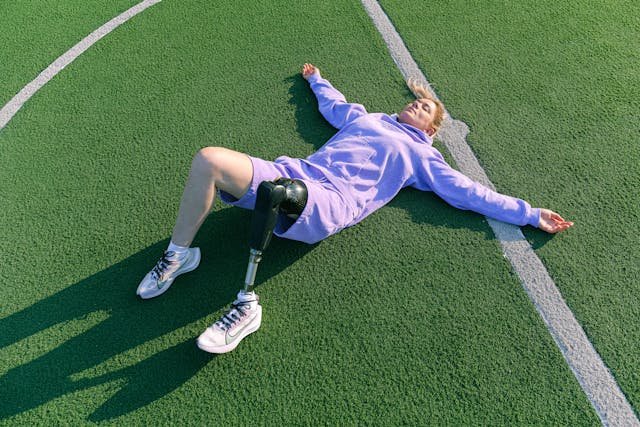For families of children who need a prosthetic limb, the journey can be both emotional and financially overwhelming. Pediatric prosthetics are essential for a child’s mobility, confidence, and independence, but they can also be expensive. The good news is that insurance and financial aid programs are available to help make these life-changing devices more affordable.
Understanding how insurance works, what financial aid options exist, and how to navigate the application process can be challenging. But with the right information, families can secure the funding they need to ensure their child receives the best prosthetic care.
In this guide, we’ll break down everything you need to know about insurance coverage, government assistance, non-profit grants, and other financial resources for pediatric prosthetics.
Let’s get started.
1. Understanding the Cost of Pediatric Prosthetics
Before diving into insurance and financial aid, it’s important to understand the real cost of pediatric prosthetics and why they require frequent adjustments and replacements.
A child grows rapidly, meaning that a prosthetic limb that fits today may not be suitable in just a few months or years. Unlike adult prosthetics, which may last many years, pediatric prosthetics need regular modifications or replacements to ensure a comfortable and functional fit. This increases the long-term cost of care.
The cost of a prosthetic limb varies depending on its type, material, and technology. A simple passive limb may cost less, while a high-tech myoelectric or sports prosthetic can be significantly more expensive. On average, a high-quality pediatric prosthetic can range from ₹1 lakh to ₹10 lakh or more, depending on the level of customization and advanced features required.
Since these costs can add up quickly, insurance and financial aid become essential in helping families afford the right prosthetic for their child.
2. How Insurance Covers Pediatric Prosthetics

Most health insurance plans offer some level of coverage for pediatric prosthetics, but the extent of that coverage varies depending on the insurance provider, policy terms, and location. Understanding your policy is the first step in determining what costs will be covered.
Many insurance plans cover basic prosthetic limbs, but they may not include advanced options like bionic hands or sports-specific prosthetics. Some plans also limit the number of prosthetics a child can receive in a certain period, which can be challenging for growing kids who frequently outgrow their devices. It’s crucial to check the policy details and clarify these points with your insurance provider.
If a prosthetic is medically necessary, insurance companies are more likely to cover it. A letter from a doctor or prosthetist explaining why a particular prosthetic is essential for the child’s development, mobility, and daily activities can help strengthen your insurance claim.
3. Navigating the Insurance Claim Process
The insurance claim process can feel overwhelming, but understanding the steps involved can make it smoother. Here’s how families can successfully file a claim for a pediatric prosthetic limb.
The first step is to get a prescription and medical documentation from the child’s doctor. The prosthetist will also provide a detailed report explaining why the specific prosthetic is necessary. This medical justification is important for insurance approval.
Next, families should contact their insurance provider to understand what is covered and what documents are required. It’s essential to ask whether the plan includes full or partial coverage, and if there are any limits on replacements or upgrades. Understanding these details in advance can prevent unexpected costs later.
Once all paperwork is submitted, the insurance company will review the claim. If the claim is denied, families have the right to appeal the decision. Providing additional medical evidence, letters from specialists, or case studies showing the benefits of the prosthetic can help overturn a denial. Persistence is key in this process.
4. Government Assistance Programs for Pediatric Prosthetics
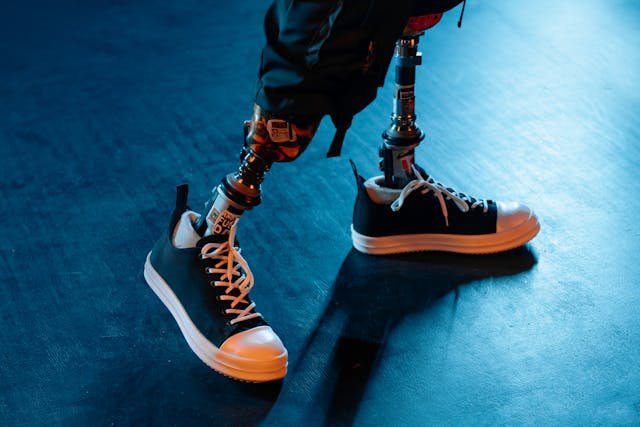
In India, several government programs help families afford prosthetic limbs for children. These programs aim to make prosthetics accessible to children from low-income families or those with special needs.
One of the most well-known initiatives is the ADIP (Assistance to Disabled Persons for Purchase/Fitting of Aids/Appliances) Scheme. This program, run by the Government of India, provides financial assistance for prosthetic limbs to eligible individuals. Families can apply through government hospitals or disability support centers.
Some state governments also offer additional financial support for prosthetic care. Certain states have health insurance schemes that cover prosthetics under disability benefits. Checking with the local health department can help families find programs available in their region.
Another important initiative is CSR (Corporate Social Responsibility) funding, where large corporations contribute to social welfare programs, including funding for pediatric prosthetics. Some hospitals and rehabilitation centers partner with corporations to provide free or subsidized prosthetic limbs to children in need.
5. Non-Profit Organizations and Charitable Grants
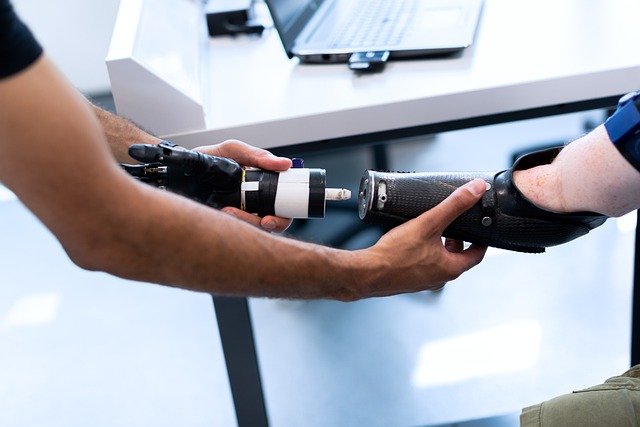
For families who do not have insurance or government assistance, non-profit organizations and charitable grants can be a valuable source of financial aid. Many organizations work specifically to help children access the prosthetics they need.
Non-profits like The Narayan Seva Sansthan, Bhagwan Mahaveer Viklang Sahayata Samiti (BMVSS), and Jaipur Foot provide low-cost or free prosthetics to children across India. These organizations focus on helping children regain mobility and confidence through high-quality prosthetic solutions.
International charities also offer support. Organizations like The LimbKind Foundation and The Heather Abbott Foundation work globally to provide funding and prosthetic donations for children who need them. Families can apply for assistance directly through these organizations.
Applying for a grant usually requires submitting medical documents, financial statements, and a letter explaining why the prosthetic is needed. Many non-profits prioritize children who come from financially struggling families, ensuring that those in need receive help first.
6. Crowdfunding and Community Support
In recent years, crowdfunding has become a popular way for families to raise funds for pediatric prosthetics. Platforms like Ketto, Milaap, and GoFundMe allow families to share their child’s story and receive financial support from friends, family, and the larger community.
Crowdfunding is especially useful when insurance does not cover the full cost of a prosthetic or when a child needs an advanced limb that is not included in traditional plans. Many families have successfully raised enough money through crowdfunding to cover custom prosthetic limbs, rehabilitation, and additional medical expenses.
Community support also plays a significant role. Many local businesses, religious organizations, and social groups organize fundraisers and charity events to help families in need. Schools, sports teams, and neighborhood communities often come together to raise money for a child’s prosthetic, proving that collective effort can make a huge difference.
7. Planning for Long-Term Prosthetic Costs
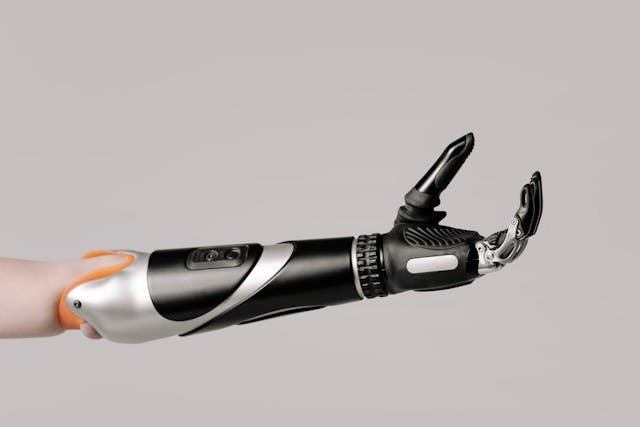
Since children outgrow prosthetic limbs, families must plan for future expenses beyond the initial purchase. Understanding how to manage long-term costs ensures that a child continues to receive the best possible prosthetic care.
One way to plan ahead is by setting up a dedicated savings fund for prosthetic-related expenses. Many families set aside a small amount each month to cover upgrades, repairs, and replacements when needed.
Exploring insurance riders or supplemental plans that offer extended prosthetic coverage can also help. Some private insurance providers offer add-on policies that provide extra financial support for medical devices and mobility aids. Checking for such options can save money in the long run.
Finally, staying connected with prosthetic manufacturers and support organizations can provide access to discount programs, upgrade plans, and refurbished prosthetic limbs at lower costs. Many companies offer trade-in programs where older prosthetics can be exchanged for new ones at reduced prices.
8. Negotiating with Insurance Providers for Better Coverage
One of the biggest challenges families face is getting adequate insurance coverage for a child’s prosthetic limb. Insurance companies often limit what they cover, leaving parents with high out-of-pocket expenses. However, with the right approach, it’s possible to negotiate better coverage and reduce financial strain.
The first step is to understand your policy inside and out. Many insurance plans have complex wording, and some essential benefits may not be immediately obvious. Parents should carefully review their policy and look for terms related to durable medical equipment (DME), prosthetic coverage, and medical necessity. Knowing these terms can help make a stronger case when negotiating with an insurance provider.
Next, families should request an exception or policy upgrade if their child’s prosthetic is not fully covered. Many insurance companies offer case-by-case exceptions, especially if the prosthetic is required for a child’s health, mobility, or daily activities. A letter from the child’s doctor, physical therapist, or prosthetist explaining why a specific prosthetic is essential can increase the chances of approval.
If the insurance company is unwilling to provide better coverage, families can appeal to a higher authority within the company. Speaking directly with a senior claims manager or medical review officer may help in getting reconsideration. In some cases, involving a patient advocate or legal expert can also strengthen the case for better coverage.
9. What to Do If Your Insurance Claim Is Denied
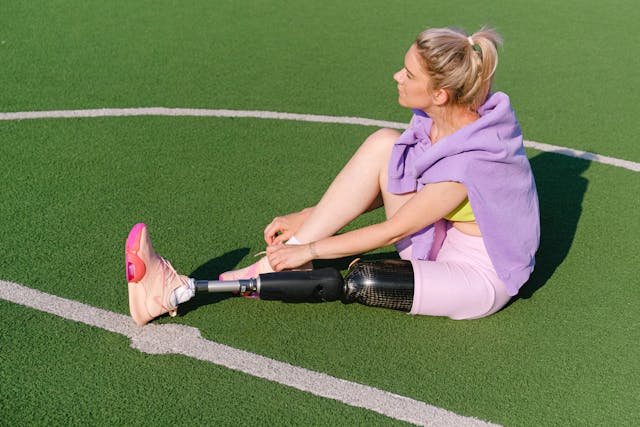
Insurance claim denials are common, but they are not the end of the road. Many families successfully overturn denied claims through appeals and persistence. Understanding the reasons for a denial and taking the right steps can significantly improve the chances of approval.
The first thing to do after a denial is to request a detailed explanation from the insurance provider. Insurance companies may deny claims for reasons such as lack of medical necessity, missing documentation, or policy exclusions. Knowing the exact reason for the denial helps in preparing a stronger appeal.
Once the reason is identified, families should gather additional supporting documents to strengthen their case. This may include:
- A letter of medical necessity from the child’s doctor explaining why the prosthetic is essential for their mobility and daily life.
- Supporting documents from the prosthetist detailing why a specific type of prosthetic limb is needed rather than a lower-cost alternative.
- Case studies or medical guidelines showing the benefits of the prosthetic limb for pediatric patients.
After gathering the necessary documents, parents should submit a formal appeal to the insurance company. This appeal should be clear, well-structured, and supported by evidence. Many insurance companies allow multiple levels of appeal, so if the first attempt fails, families should not hesitate to escalate the matter further.
If the claim continues to be denied, families may have the option of filing a complaint with the insurance regulatory body in their country. In India, this would be the Insurance Regulatory and Development Authority of India (IRDAI), which oversees insurance practices and ensures that companies do not wrongfully deny valid claims.
10. The Role of Hospitals and Prosthetic Providers in Financial Assistance
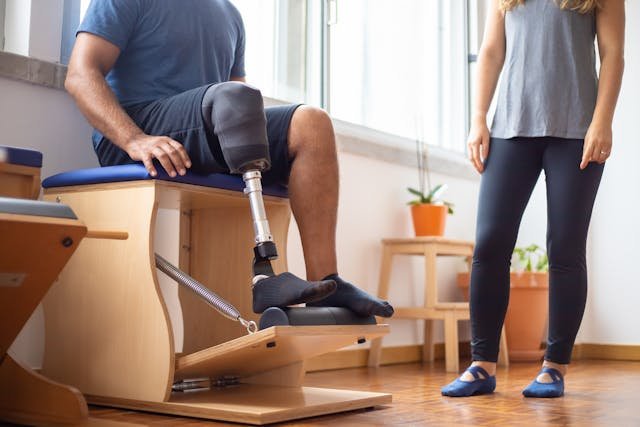
Many hospitals, clinics, and prosthetic manufacturers offer financial assistance programs to help families afford pediatric prosthetics. These programs often bridge the gap when insurance does not cover the full cost or when families face financial difficulties.
Some hospitals have in-house funding programs that assist families in need. These funds are typically provided through hospital foundations, corporate donations, or partnerships with non-profit organizations. Parents should check with their child’s hospital to see if they qualify for any assistance programs.
Prosthetic manufacturers like Robobionics often work with CSR (Corporate Social Responsibility) initiatives to provide discounted or subsidized prosthetics for children. Companies that manufacture prosthetic components sometimes donate or offer special pricing for pediatric patients. Families should ask their prosthetist if any such programs are available.
Additionally, some rehabilitation centers and prosthetic clinics offer payment plans that allow families to pay for a prosthetic in installments instead of a lump sum. These flexible payment options can help ease the financial burden while ensuring that children get the prosthetic they need without delay.
11. Tax Benefits and Medical Expense Deductions for Prosthetics
Many families are unaware that prosthetic limbs and related medical expenses may qualify for tax deductions and benefits. Understanding these financial advantages can help reduce the overall cost of prosthetic care.
In India, medical expenses for a child with a disability may be eligible for tax deductions under Section 80DD and 80U of the Income Tax Act. These sections provide financial relief for expenses related to disability support, including prosthetic limbs, rehabilitation, and medical treatments. Families should consult a tax expert to determine how much they can claim and ensure that they keep all medical bills and receipts as proof.
Parents should also check if their employer provides medical reimbursement benefits that can be used for prosthetic expenses. Some organizations offer additional healthcare allowances for employees with children who have medical needs. If applicable, this can be another way to offset costs.
In some cases, families may be able to receive a refund on the GST (Goods and Services Tax) paid on medical equipment, including prosthetic limbs. Certain government programs and health insurance plans offer reimbursement for tax paid on essential medical devices. Checking with a tax consultant or healthcare financial expert can help parents maximize their savings.
12. Long-Term Financial Planning for Pediatric Prosthetics

Since children outgrow their prosthetic limbs frequently, it’s important for families to plan ahead for future expenses. Being financially prepared ensures that a child never has to go without a properly fitting prosthetic.
One strategy is to set up a medical savings account or health fund specifically for prosthetic-related expenses. Even small monthly contributions can add up over time, making it easier to afford replacements, repairs, and upgrades when needed.
Another option is to explore health insurance policies with lifetime renewal. Some private insurers offer plans that provide ongoing coverage for prosthetic limbs, ensuring that families are not left unprotected as their child grows. Choosing a policy that includes comprehensive prosthetic benefits can save significant money in the long run.
Finally, staying connected with prosthetic manufacturers, hospitals, and non-profits ensures that families remain aware of new financial aid programs, grants, and discounts. Many organizations update their funding options regularly, so keeping in touch with support groups can provide valuable financial assistance opportunities.
Final Thoughts: Making Pediatric Prosthetics Affordable for Every Family
No child should have to go without a prosthetic limb due to financial barriers. While the cost of pediatric prosthetics can be high, insurance coverage, government aid, charitable grants, and financial planning provide multiple ways to make them affordable.
At Robobionics, we believe in helping families access the best prosthetic technology without financial stress. We work closely with parents, insurance providers, and financial aid programs to ensure that every child gets the support they need.
If you’re struggling with the financial side of prosthetic care, contact us today. Our team can guide you through insurance claims, financial aid applications, and cost-effective prosthetic solutions tailored to your child’s needs. Let’s work together to ensure every child has the freedom to move, play, and explore without limits.



